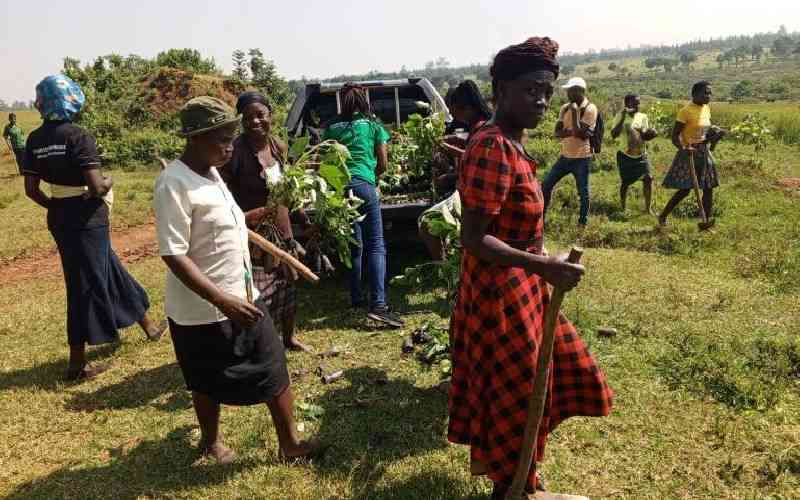×
The Standard e-Paper
Join Thousands Daily

A group of women from Kakamega County have courageously taken a leading role in planting indigenous trees, defying the odds and stereotypes associated with such activities.
It has not been a walk in the park for the women because some Luhya cultural beliefs and practices forbid them from planting trees and many other activities reserved for men only.